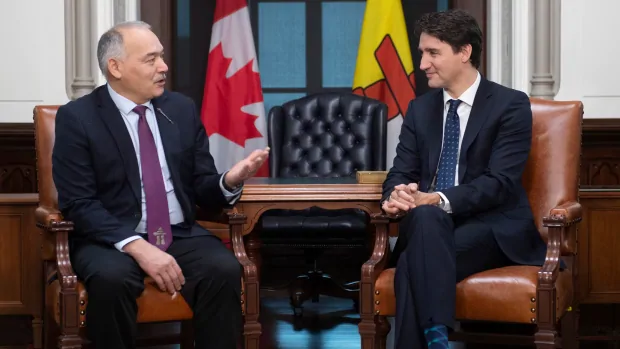Nunavut premier calls for bigger carbon tax rebates in the North

The premier of Nunavut says Canadians living in the North should receive higher rebates to compensate for the federal carbon tax than people in southern Canada.
The Trudeau government introduced the carbon tax in 2018 and gave itself the authority to implement a carbon-pricing system for provinces and territories that did not adopt carbon-pricing models of their own that reached the federal standard.
The tax started at $20 per tonne of carbon-dioxide emissions this year and will rise by $10 per tonne each year until it reaches $50 per tonne in 2022.
The federal government calls the tax revenue-neutral because all of the money collected through carbon pricing is supposed to be returned directly to the jurisdictions where the federal system is imposed, most of it through direct rebates to residents when they file income taxes.
Nunavut didn’t develop its own carbon-pricing plan, so it is subject to the federal tax.
But Premier Joe Savikataaq argues the tax is not revenue-neutral for his territory because it has a multiplying effect.
“It compounds the cost of everything in the North,” where residents already face the highest cost of living in the country, Savikataaq said after meeting Thursday with Prime Minister Justin Trudeau in Ottawa.
“When the carbon tax is imposed in Nunavut it puts the price of fuel up and the price of heating fuel and gasoline up,” he explained.
“But it also puts the price up for all the freight that comes up, all the food that comes up.”
Ontario, Saskatchewan, Alberta and Manitoba are all in the midst of legal challenges against the federal carbon price.
Earlier this year, Ontario’s Court of Appeal found the scheme is constitutionally sound, prompting the province’s Progressive Conservative government to ask the Supreme Court of Canada to overturn the decision.
Nunavut won’t fight tax
While the Nunavut government also opposes the federal tax, it won’t fight it, Savikataaq said.
“It’s here and we know it’s staying and it doesn’t do any good to fight something that’s already there and in place,” he said.
“We just want to get more resources so we can do our share to mitigate the effects of climate change.”
Savikataaq said he and Trudeau spoke Thursday about climate change, where the premier noted that Canada’s North is warming at a much faster rate than the rest of Canada. But the premier said he did not specifically raise the issue of higher tax rebates to offset the effects of the carbon tax on residents of Nunavut.
The two leaders did talk at length about the housing crisis in the North.
And while Trudeau made no specific commitments, he did promise to continue working on the issue, Savikataaq said.





